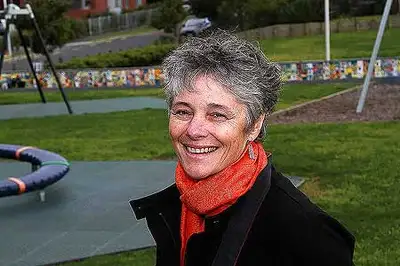
"Cities are generally designed for adults and cars and a default planning position largely confines children’s use of the public realm to places like playgrounds, skate parks and sports grounds," Professor Karen Witten says.
The design of city streets and public spaces affects how people move through, engage and connect with their communities.
In the latest public lecture in Massey University’s Health by Design series, Professor Karen Witten will discuss how re-designing streets and public spaces can support the wellbeing of children by providing opportunities for play and their engagement in community life.
“Use of urban space is contested and not everyone experiences an equal right to be present in the public spaces of the city,” Professor Witten says. “Children are particularly attuned to attributes that gesture their inclusion or exclusion. Cities are generally designed for adults and cars and a default planning position largely confines children’s use of the public realm to places like playgrounds, skate parks and sports grounds.
“If children can safely move about and play in their neighbourhoods, their independence, resilience and social competence are enhanced – and the whole community benefits, because towns and cities that are safe to move around in and incorporate playful elements are good for everyone,” she says.
To bring children’s voices to urban planning and create places that nurture children’s wellbeing Professor Witten and colleagues have facilitated three Auckland case studies in which children have engaged with urban designers in the co-design of public space. The first two, Freyberg Square and Viaduct Harbour, are in the central city and the third, Puhinui Stream, is a suburban greenway network in South Auckland.

Professor Karen Witten from the SHORE & Whāriki Research Centre.
Co-design with children can enhance processes and outcomes, she says. “In the co-design of Freyberg Square, facilitated in 2015 in collaboration with Auckland Council, designers felt the concept was stronger because of the children’s input. They also noted that interacting with the children’s ideas encouraged different ways of seeing the space.”
The Viaduct Harbour and Puhinui Stream case studies are collaborations with Panuku, the development arm of Auckland Council.
Professor Witten’s presentation will outline how the co-design processes have evolved using a “do-learn-do” approach. She considers what has worked well and what has not from children’s, designers’ and researchers’ perspectives, mana whenua engagement, conflicts over space, and the integration of children’s participation into routine planning processes to create more inclusive public space which promotes community wellbeing.
Massey’s College of Health invites you to its series of free public lectures by leading researchers presenting innovative research and solution-focused case studies aimed at helping us to understand how design and design thinking can be applied to improve health and wellbeing.
Event details
Time: 5.30pm start with networking, drinks and nibbles. Event concludes approximately 7.00pm
Date: August 8
Location: SNW100, Sir Neil Waters Lecture Theatre, Gate 1, Albany Expressway, Massey University Auckland
Click here to register and for more information about the Health by Design public lecture series.